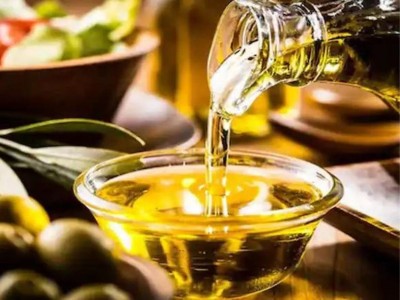- Phone: +977-9808226344
- Email: critnepal@gmail.com

The government of India has reduced the customs duty on the import of raw materials of soybean and sunflower oil to zero due to the high price of edible oil.
The Government of India has made the customs duty on raw material of edible oil zero in last May. The Revenue Department of the Government of India has made zero customs duty on the import of raw materials of edible oil with effect till March 2024.
Government of India has maintained zero customs duty and 5% GST on import of oil raw materials.
Customs duty of 10 percent and 13 percent VAT is charged on import of raw materials in Nepal. As a result, the policy taken by the Indian government is cheaper than what is exported and sold from Nepal.
With the government of India making the customs duty zero on the import of raw materials, there has been a high impact on the oil exported from Nepal. With the adoption of this policy by the Indian government on oil, which accounts for more than 50 percent of Nepal's exports, the export of soybean and sunflower oil has decreased by about 100 percent.
With the government of India maintaining a zero duty rate on the import of raw materials, the price of oil in India becomes cheaper. As a result, the share of oil processed and exported from Nepal in India seems to be very weak.
The data of the customs department also clearly shows that exports have decreased due to the inability to export oil in India. In the case of other items, it does not seem to decrease during the four months period. However, when there is a big drop in oil exports, it seems that overall exports have decreased by 33 percent.
Similarly, during the four months of the current financial year, exports from Nepal worth 54.77 billion 43 million have been exported to 15.55 billion 25.91 thousand countries worth about 70 million. Even palm oil have a share in the exported oil.
In the same period last year, Nepal exported 225 million 46 thousand liters of oil worth 47 billion 46 million 37 million 56 thousand rupees.
According to the statistics of the Customs Department, oil exports decreased by 67.23 percent during the four months of the current financial year compared to last year.
Similarly, the Indian government's policy of zero customs duty has resulted in a decline of 80.56 percent in the export of soybean and sunflower oil.
Last year, 1171 million 83 liters of soybean oil worth 26 billion 401 million rupees and 12 million 276 thousand liters of sunflower oil worth 2 billion 379 million rupees were exported from Nepal.
However, during the same period of this year, 21.1154 thousand liters of soybean oil worth 5.32 billion 23 million rupees and 985 thousand liters of sunflower oil worth 204.2 million 27 thousand rupees have been exported. Which is very less.
Most of the oil that is processed and exported in Nepal is going to India. 100% of Nepal's oil export market is India. Therefore, whatever decision the Indian government takes, there is a direct impact.
The Indian government's decision to allow consumers to consume edible oil in a cheap and simple way has caused problems for the industrialists of Nepal. Last year, Nepal set a new record by exporting the most oil ever.
At that time, the Government of India had fixed the customs duty on the import of raw materials. In which India imported raw material and processed it and sold it in the market, it was more expensive than the oil exported from Nepal. Therefore, a large amount of oil was exported from Nepal.
With the increase in oil exports in India, there was a boom in the business of most of the oil industries in Nepal. However, when India decides in favor of its consumers, a problem has been created in the Nepalese industry, which has more than 50 billion investments.
Raw materials required for oil production in Nepal are not produced domestically. Nepal has been importing raw materials from Indonesia, Argentina, Malaysia, Ukraine, Russia and other countries. After processing the same imported oil, industrialists supply it to the domestic market and also has been exporting India.
Imports fell by 31 percent
During the four months of the current fiscal year, along with the decrease in oil exports, imports also decreased by 31 percent. Last year, it imported raw materials of palm, sunflower and soybeans worth 54 billion 657 million rupees.
In the same period of this year, it has imported 1927 million 87 thousand liters of crude oil worth 37 billion 7976 million rupees.
During that period, it has imported crude soybean oil worth 18.33 billion 73 million rupees, crude palm oil worth 14.38 billion 12 million rupees and crude sunflower oil worth 5.57 billion rupees.
For Daily Edible Oil Rate NepalCommodity.com